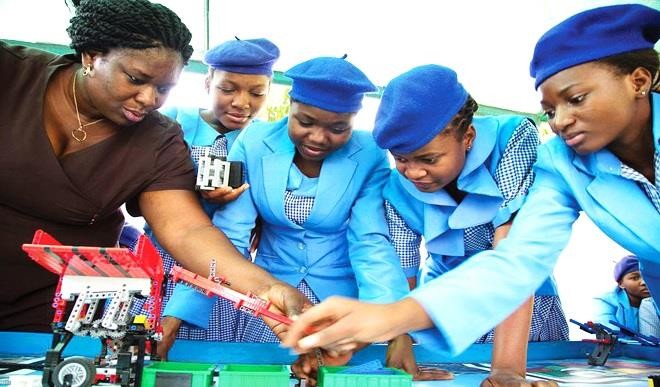There’s no magic to solving mathematics’
How did you start mentoring young girls? It started when I went to India to for a Masters degree in telecommunication Management. Having spent seven years in the telecom industry, I felt the need to do a further study but was taken aback by the way the Indians embraced STEM (Science, Technology, Engineering and Mathematics). […]


How did you start mentoring young girls?
It started when I went to India to for a Masters degree in telecommunication Management. Having spent seven years in the telecom industry, I felt the need to do a further study but was taken aback by the way the Indians embraced STEM (Science, Technology, Engineering and Mathematics). In the class, they gave answers to anything mathematical without a calculator, so I thought they were using juju because I couldn’t imagine that such huge numbers can be calculated without calculator. I found out that it was not juju. It was developing your brain to be able to do these calculations. I went to their after-school centres and found out that speed maths was taught the kids and it helped them solve complex calculations without calculator. I also noticed that schools closes early to accommodate the after-school programmes where the kids are taught about their possible careers rather than their academics and a lot of hands on activities are what the kids engage in.
So, when I came back, the urge to go back to my job died and I had to find a way of inculcating these values in Nigerian kids.
How did Odyssey Educational Foundation come about?
I thought of how can we get this message across to the kids as fast as possible, how can this digital bridge be closed and how can we ensure that the under-represented are all involved in this beautiful initiative, that led to the birth of the NGO.
How do you fund your project?
Funding has been the most challenging aspect as rent in Abuja is exorbitant. We depend on savings and donations from family and friends. We are shocked that projects such as these that could move our country forward are not funded and getting volunteers is an uphill task when in other countries projects like these are picked up even at infancy.
How do you ensure it is sustained?
We have put in place a lot of measures to ensure that the programme is sustained like ensuring that we generate funds by giving
out some services while charging reduced rates. We engage some beneficiaries to volunteer their services. Our alumni come to help us with some of the projects. We also recruit volunteers from the public.
Could you explain what exactly these projects entail?
We engage the kids in all the areas of STEAM. By that we mean science, technology, engineering, arts and mathematics because this is the latest. But ideally, the methodology is what makes them get interested and before the project, we do some weeks of sensitising like telling them about the career choices and what a professional is likely to earn and the females who have excelled in that field.
Is there any particular reason your work focuses on girls alone?
No. I do not focus on girls alone, I only ensure that the ratio of the girls to boys is 3 to 1 because we noticed that most girls shy away from STEM and I read electrical electronics. I found out very few girls were in the department, not that they were not intelligent but they never wanted to try.
You left well-paying job to start this. What are the worries, challenges and risks you face?
I left a regular paying job but you know we are all spirit beings. When the instruction came that I should go and teach kids, I had no joy in my job. We began to gather kids and teach them, though I did not have an office to operate from. I decided to gather them in government schools. I used a friend’s school who allowed us space after school or during holiday, for a stipend. I let her realise that it was service to humanity. My worry was how I was going to carry on with this with the little funds I had which could hardly pay for the computers needed and how to get trained teachers that would be ready to volunteer their services. Funding has been one of our major challenges and I took a risk to start because I know that life itself is a risk.
How many girls have you trained so far and what is the age bracket?
We have trained over 450 girls from ages six to 19, in primary and secondary schools. We have worked with 15 government schools in the FCT, cutting across primary, JSS and SSS.
What is most gratifying for you in all of this?
The most gratifying part has been the smile and the nod I get from the kids when they perform a task they felt was impossible for them to achieve.
What is your ultimate goal?
My ultimate goal is to ensure that the kids become college-ready, career-ready and world-ready.
